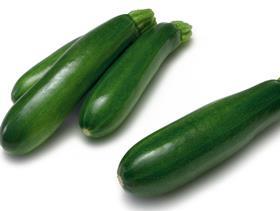
A Cornish grower is hosting the UK’s first-ever study into the pollination of courgettes to test which species could maximise yields.
Riviera Produce, based near Hayle, is collaborating with the University of Exeter’s Environment and Sustainability Institute (ESI) to investigate which insect species are responsible for courgette pollination.
The three-year project will be carried out by a PhD student at the firm’s 5,000 acre Higher Trevaskis Farm.
The HDC, in partnership with the Cucurbit Growers Association, will deliver results from the work to the whole UK courgette industry.
Courgettes are native to North America where they are pollinated by quash bees, which have evolved to exploit the flowers’ sticky pollen grains. Very little is known about the impact of British bees, or other insect species, on courgette pollination.
“Courgettes are a very high-value crop with tight profit margins, so just a small increase in yield could make a big difference commercially,” said Ellis Luckhurst, Riviera Produce’s technical manager.
“We don’t yet know how much of a role – if any – bees play in pollinating courgettes, but this research will ensure we base any future changes on sound science.”
The research will use nets to exclude pollinators from some plants, while increasing numbers among others, to measure the difference pollinating insects make to the yield.
It will also test different ways of attracting more pollinators by growing wild flowers nearby to see if they attract or distract, and introduce more pollinating species, for example honeybees or commercial bumblebees, to the plants.
David Rodda, rural delivery manager of the Cornwall Agri-Food Council, said: “It is fantastic to see academics and farmers working together to address such an important issue.
“We are fortunate here in Cornwall to have a world-class institute that has the knowledge to tackle some of the issues that our farms are facing. I hope this collaboration with the ESI will be the first of many.”
ESI’s Professor Juliet Osborne said the study is an opportunity to do cutting-edge science while benefiting a local business. “I hope this research collaboration will make a real difference to the business commercially and to Cornwall’s local food agenda, as well as helping them ensure they have a positive impact on the local environment. It should be good for the business and good for bees,” she added.
Riviera Produce markets nearly half of Cornwall’s cauliflower and spring greens and during the summer is one of the region’s leading courgette suppliers.



